The stories behind Rocking.gr's The Absolute Guide To Progressive Metal
The artists reveal unknown aspects and comment our guide
20/09/2013 @ 13:58
We knew that the decision we made to write down The Absolute Guide To Progressive Metal was a challenging one and it wouldn’t be easy to cope with everyone’s opinion. The overall great feedback we received from the majority of the readers made us want to thank them by offering something more, something quite special.
So, we contacted some of the creators of albums that are on our list and asked them to share with us some thoughts or stories behind the creation of their own albums.
We need to thank from the bottom of our hearts Markus Steffen, Damian Wilson, Arjen Lucassen, Adam Wakeman, Devon Graves, Johan Liefvendahl, Stefan Zell and Daniel Gildenlow for contributing by adding -more or less each one of them- some great stories for albums that have shaped the lives of some of us.
Enjoy and continue to prog on.
Chris Karadimitris
Arjen Anthony Lucassen (Ayreon, Star One)
 Star One - "Space Metal"
Star One - "Space Metal"
Star One was originally planned as a project from Bruce Dickinson and me. He suggested to do something together, because he really liked our cooperation on the Ayreon track 'Into the Black Hole'. I had already written 12 tracks and Bruce began writing lyrics to 4 of them. But then unfortunately his manager canceled the whole thing. So I decided to contact my favorite musicians and friends to work on this album and Star One was born. I see Star One as the 'metal son of Ayreon'. I'm happy it turned out this way, the little tour we did together was magic as well!
 Ayreon - "The Human Equation"
Ayreon - "The Human Equation"
"The Human Equation" was a bit of a departure from the previous Ayreon albums because it wasn't a sci-fi story. Also I decided to work with only singers I had never worked with before. But somehow this combination of amazing new singers and the emotional story was magic, and -besides "Into The Electric Castle"- this turned out to be the favorite Ayreon album amongst the fans. Many different styles of music on this one, I guess you need an open mind to enjoy it.
Johan Leifvendahl (Seventh Wonder)
 Seventh Wonder - "The Great Escape"
Seventh Wonder - "The Great Escape"
The album is now more than 2,5 years old and when I listen to the album now I have to say that I`m pretty pleased with it. Of course, you always fine some things that we could have made better. But, when you are in a studio recording an album, it´s really difficult to take a step back a listen to what you created. The only way to do that is to give it some time... I listened to the title track (over 30 minutes long?! the ultimate radio single) a while ago for the first time in a year and I have to admit that It almost sound like someone else is playing the guitar on that track!! Because all the guitar parts were learnt directly before the recordings and since there is so much music on one single track it´s impossible to remember how to play it now! Hope to never play it live...
We have received a lot of great reviews of "The Great Escape" and a lot of people think that it´s the best one we ever made, so with that in mind I have to say we are all happy with the result. The only bad thing with all that is that the pressure is higher than ever for the new album. But, you can easily turn it into a good thing as well.
Stay tuned for the new Seventh Wonder album! The working progress continues.
Damian Wilson (Star One, Headspace)
 Star One - "Space Metal"
Star One - "Space Metal"
An album I believe that was originally put together for Bruce Dickinson from Iron Maiden. Written and recorded by Arjen Lucassen who always brings the very best out of the singers and musicians he chooses to work with. It was an album that was fun to record and even better to tour!
 Headspace - "I Am Anonymous"
Headspace - "I Am Anonymous"
A group of friends wrote and recorded this album, mixing all our styles and ideas, yet it reflects on the individual. Revealing acceptance through failure, suffering, social expectation and culture, whilst highlighting the never ending destruction and reconstruction by man.
Adam Wakeman (Headspace)
 Headspace - "I Am Anonymous"
Headspace - "I Am Anonymous"
We spent 5 years writing and recording "I Am Anonymous" so we didn't have to compromise on the album we wanted to make. The band is the sum of its parts - 5 guys making the music they want to.
Markus Steffen (Sieges Even, Subsignal)
 Sieges Even - "A Sense Of Change"
Sieges Even - "A Sense Of Change"
This album was meant to be a real turning point for the band. It was the first album that was completely recorded digitally (and it was the first album that was exclusively released as compact disc). The recordings were not easy: Our original singer Franz Herde wasn't able to cope with the music, which was now more melodic and transparent. So, we had to replace him with Jogi Kaiser. In the end, we were very happy with the result. The songs were more 'songs', and I think you can hear that we try to focus more on structure and emotion. I still dig the album a lot. Tracks like "These Empty Places" or "Epigram" still mean a lot to me.
 Sieges Even - "The Art Of Navigating By The Stars"
Sieges Even - "The Art Of Navigating By The Stars"
Well, first album after the reunion, first album with Arno. Actually, I listened to it this morning, and it still touches me. There are so many great moments on the album, and personally I think, that songs like "Unbreakable" or "The Lonely Views Of Condors" were the best Sieges Even have ever written. With Subsignal we still play those tunes once in a while. As for the production, I am not overall happy, especially the drum sound is something I would like to change if I could, but all in all, the album has a special flair, and maybe this comes from a sound that isn't that perfect. To me "The Art Of Navigating By The Stars" is important, since it marks the beginning of Arno's and mine creative collaboration - since then we did seven productions together.
 Subsignal - "Touchstones"
Subsignal - "Touchstones"
The album was a real beast to record because it was so damn long (78 minutes). This time we worked in different studios, and I think the sound of the album is really great. A little story on the side: in the song "Echoes in Eternity" you can hear a keyboard / guitar melody. If you are familiar with our first album and its opening track "Where Angels Fear to Tread" you can hear that this melody is almost exactly the same, of course with some variations and played in a different key. Arno and I thought it would be nice to use this melody as a little Subsignal-'theme' since "Where Angels Fear To Tread" was the first song Arno and I had written after the Sieges Even-split. It was intended as a trilogy. So, on our new album "Paraíso" this trilogy comes to an end with the song 'A new reliance' in which the theme reappears. Apart from that, there are some great songs on 'Touchstones' that have ended up in our regular live set, e.g. "My Sanctuary", "Feeding Utopia" and the title track. I think you can hear that with the second album Subsignal has turned into a real band. All members were more involved in the whole process.
Devon Graves (Psychotic Waltz, Deadsoul Tribe, The Shadow Theory)
 Psychotic Waltz - "A Social Grace"
Psychotic Waltz - "A Social Grace"
"A Social Grace" is considered to be a cornerstone of progressive metal music. What is the magic element that makes it so special even today?
As far as any magic, who really knows? It is not something you can plan. These things just happen and we are just lucky that it happened to us. If there is any magic I may be aware of, it could just simply be the fact that we all really believed in what we were doing, and we worked with a great engineer named Mike Harris who allowed us to really experiment and do whatever we wanted. Things like flipping the tape on backwards and recording reverb and delays on a track ("Successor")... Sometimes engineers can be a bit constraining and rigid to their own practices. Mike was great, and never said 'no'.
 Psychotic Waltz - "Into The Everflow"
Psychotic Waltz - "Into The Everflow"
How did you evolve from "A Social Grace" to "Into The Everflow"? How was this album accepted when it was released?
This one was just our next step. We wanted to move into a more dark and dreamy kinda sound and my lyrics were a bit different. I guess my lyrics always change from album to album to create a theme. The theme on "Into The Everflow" was pure 'escapism'. I don't think it was as immediately accepted as A Social Grace because the shift might have come as a surprise, especially beginning with a track like "Ashes". In time though I think people caught on and it became accepted on the same level if not higher to some.
 Deadsoul Tribe - "A Murder Of Crows"
Deadsoul Tribe - "A Murder Of Crows"
"A Murder Of Crows" is your best strictly personal work and made sure you returned to stay in music production. Are there any interesting stories about it? What led to you visit such dark places lyric wise?
That one is my favorite too. I really found 'my sound' on that one, but it turned out to be a mistake to stick with that sound for the next two albums. I don't know why a signature sound works for AC-DC and Korn, but not for me. I guess since I am known for changing every time, that people expect me to change even if they like what I did last. I figured that out though. I guess A Lullaby for the Devil should have been my third album (and mixed a lot better) and things would be different today. Who knows? My lyrics were always a bit on the dark side so there was no intentional change. I think though, I began to get better at writing lyrics.
 The Shadow Theory - "Behind The Black Veil"
The Shadow Theory - "Behind The Black Veil"
Are there any unknown stories behind the creation of "Behind The Black Veil"? There are many different musical elements on this album, which ones are your favorite? What was the main reason for not being as successful as you waited and it deserved to be? Is there any music left from the sessions of this album? Would it be possible to see a follow up some day?
I don't know if the stories are so much 'unknown' since I did tons of interviews and talked about it a lot. Basically though, this was my first attempt at creating a single story out of a whole album. That is pretty tricky when you already have all the music composed and you need to arrange the songs in a certain order to give the album a good dynamic flow, yet at the same time have the lyrics connect together in the right order. In the end though, There are some of my favorite lyrics ever on this album. "By the Crossroads" comes to mind here. The story is partly inspired by personal para-normal experiences, some dreams I had, and the rest I just made up. The different musical elements comes from having a few different composers and having the luxury of picking and choosing whatever I liked, and then re-arranging the songs to suit my needs. It was a really fun project. I wanted it to be a serious band and it was to be my next step in music. As fate would have it, right around release time for the album I was approached by Psychotic Waltz to reunite and in doing that, all the interest moved in that direction. Despite the wide praise of Behind the Black Veil, nobody seemed to care about it, and only wanted Psychotic Waltz. It is a pity because Behind the Black Veil is probably the best thing I have ever done, yet it was by far the worst selling. Go figure. Anyway, I can take a hint. I am sticking with Psychotic Waltz. Anything I write that doesn't suit Psychotic I will release independently on my website www.devon-graves.com . Check that out. I am putting tons of music, new and old as well as whatever video I find usable for free download for everybody. I am hoping the site will be supported my donations alone. I give the music freely and people can give whatever they want to, if they want to.
Stefan Zell (Wolverine)
 Wolverine - "Still"
Wolverine - "Still"
The recording of "Cold Light Of Monday" had been kind of messy. We recorded it in a studio in Sweden but when we had the final mix in our hands it was obvious to us it wasn’t good enough. We made the painful, but necessary, decision to re-record the entire album. We kept the drums but apart from that pretty much everything was re-recorded. I’m very proud of that album but it was a painful one to make.
When it was time to do "Still" a lot had changed for us. Per Broddesson had left the band so Mikael handled guitar duties on his own. This was however a change that felt good for us, not taking away anything from Per because he’s a brilliant guitarist. It’s just that we realized that we didn’t need more than one guitarist. Writing the new songs went pretty smooth if memory serves me well and we decided to not try and record the album ourselves (like we tried with "Cold Light Of Monday") but we went down to Spacelab Studios in Germany and recorded the entire album, except drums and bass, there together with Oliver Philipps and Christian Moos. I have nothing but great memories from that recording.
I love the album. From the opening track "A House Of Plague" to the closing track "And She Slowly Dies" I think we really managed to create a really special album. In a way I think it defines us as a band. We always like to progress and develop our sound a bit but listening to "Still", in a way, I think that the album holds the essence of what Wolverine is all about.
We’ve pretty much always been blessed with great reviews and "Still" was no exception. Although it being the album that has sold the most so far it didn’t manage to get us to the next level commercially speaking. I think it’s a shame that we couldn’t tour more in support of the album because if we had I’m sure that next level had been within our reach. However, I’m really proud to have been a part of the process of creating that album. I’m also proud of it being included in your Absolute Guide To Progressive Metal.
Daniel Gildenlow (Pain Of Salvation)
 Pain Of Salvation - "Entropia"
Pain Of Salvation - "Entropia"
First album, what an adventure. I was studying Industrial Design and Product Development at the time, and I remember printing sheets of paper that we taped on the windows of the rented van for the five hour drive down to Malmoe, where the studio was at. One paper had a photo of Audrey Hepburn on it and the large words 'PAIN OF SALVATION - BEAUTIFUL MUSIC'. The road to fame, riches and (somehow) beauty was laid open wide before us.
The thing with any debut album is that it is, in some respects and to some extent, a collection of what you have been up to before you started recording albums, if you catch my drift. So, bands are basically making a "The Best Of" as their very first album. For bands that are slow at composing, this could potentially be a huge problem when they suddenly need to make their second album in just a few months. Either way, this was never the problem for us - me and Daniel Magdic had an insane pace at completing music back then, so we had a lot of fresh material to pick from. No, my biggest problem was the thematics.
Pain of Salvation had already seen two or three entire concept albums (with "Twilight Voices" spanning the length of two albums distributed over twenty-seven tracks, most of which have never been recorded) come and go. But now, I hungered for something socially and politically oriented. I felt done with the 90s take on good versus evil, props and melodrama (the later released bonus tracks "Beyond The Mirror" and "Timeweaver's Tale" show where I came from in the late 80s, and "Thorn Clown" where I was in the early 90s). So now, I had to stitch songs together that were originally not meant to form a concept. I went about it by re-writing lyrics and trying different song orders. Of course, this was done in the studio, with hours to go before we had to put the vocal tracks on tape. If I may paraphrase Thomas Edison, making an album for Pain of Salvation is one third inspiration, one third transpiration (more for the drummer) and one third panic. All thirds are equally interesting though.
In the end, almost feverish, I pulled the other band members into the dilemma - and this is the memory I wanted to arrive at here. I see it, as vividly as were it yesterday (or, say, last week maybe): Late night. Everyone, gathered around the old rickety living room table of the small apartment that we are renting in Malmoe. On the table are small pieces of paper laid out - each piece of paper has a song title written on it.
'How about this?'
'No, then the storyline gets broken right here.'
'But can't we fix that if we shift these two around?'
'No wait, then those two songs right there go back to back and that just won't fly.'
Everyone is pitching in as we move the pieces around in passionate desperation, until I find the solution in having the story being told through the memory of the characters, allowing us to jumble the timeline after thematic connectivity rather than chronology. Us, there, desperately shifting small torn pieces of paper - that's the backbone of one of your classics on this list. That equally interesting third of panic.
 Pain Of Salvation - "The Perfect Element Pt.1"
Pain Of Salvation - "The Perfect Element Pt.1"
I know this is a huge fan favorite, but the truth is that I had to fight my ass off to have this album recorded. The people hearing the demos were skeptic at best, and both labels and management questioned our direction, and if we hadn't proven ourselves with the two first albums already, I doubt that I could have pushed this creation into being. We would definitely never even have gotten signed with this type of album - it was just too weird. Even my band members, who normally trusted my decisions, seemed a bit concerned (and, keep in mind, they didn't blink when I presented the foundation for the concept of our second album: 102 pages of source material and my 12 page essay on the connections of nuclear/weapon industries, global water consumption and dispossession of indigenous peoples).
It was a rather slow album, based on a collection of poems that I was working on (also called "The Perfect Element"), and many of the tracks were experienced as droning without vocal tracks to create the build-up. I was looking for us to find a new sound, and numerous times we had the alarming feeling that we were in uncharted territory. But as the recordings proceeded and all those sublayers were getting locked in, I could tell we were winning the management and engineers over, and I knew this was how this album would win people over. By slow and unrelenting perseverance, wearing down their defenses, inch by inch.
I remember being annoyed with the prog forums on the Internet that took on a very elitistic view on music (someone wrote that a good song could never have only three chords, and others agreed, I mean, seriously?), and so I wrote "Ashes" for the sole reason of proving that a good prog song can be made of only three common chords. And I was so hell bent in my mission that I decided to have the chords repeatedly running through the entire song, for all passages, without exception. Such a silly reason for writing a song, really, but it served its purposes. Still today, it is a very appreciated song among our fans, and it might be the one song from the early albums that I still really enjoy playing the most, together with "Chain Sling" from "Remedy Lane".
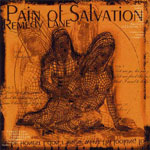 Pain Of Salvation - "Remedy Lane"
Pain Of Salvation - "Remedy Lane"
This is by far the fastest album from start to finish in our entire discography. We were asked to join Dream Theater on their European tour in 2002, and we were told by our label that we needed an album done by then. This was, by many standards (and especially by ours), an impossible task. I remember trying to find my way into envisioning a new album, but never really finding footing. This was late 2001 and me and my wife Johanna had seen a very tough year together, and this took a lot of my time and focus.
I think it might have been my getting drunk one night and writing "Undertow" in basically the amount of time it takes to play it, including almost all of the lyrics. I think that's what opened up the idea for the album. If it wasn't, then hell, it should have been because that makes most sense. Anyway, that gave birth to the idea of using all this shit that was clogging my system and make that the album. After this decision, in an intuitive and fierce process, I wrote the entire album and we recorded it - all in a matter of a few weeks. And, everyone who saw us on that tour know that we indeed made the deadline, against all odds.
Creatively, this may have been the path of least resistance, but emotionally, I am still paying a high price for this album. Partly because, when I perform songs from this album, I get pulled back to that place. But also because, turning my own experiences into a product, and tweaking it here and there, I have in a way lost my personal and unique connection to these experiences and memories. They have become Pain Of Salvation and "Remedy Lane". And that is a loss. It's like having this song from your childhood that pulls you back there when you hear it, but you know that every time you repeat it, the magic fades, like a cassette tape that has been played too many times.
By this time we felt at home in the studio down in Malmoe, and had taken to working late nights on our own, recording. And more of our relaxed experimenting from the rehearsal room entered the recordings. The weird sound before the first verse in Trace of Blood is a plastic toy that I grabbed before entering the vocal booth. I never thought it would survive to the finished product. For one of the songs, I smuggled a tambourine into the vocal booth, and kept it hidden and dead still while singing most of the track. When I suddenly started to play it loudly in the last chorus, everyone broke down in fits of laughter in the control room, half because of the surprise and half because I had waited for so long. Looking back, I think the severity of the concept made those vents necessary, especially for me.
 Pain Of Salvation - "BE"
Pain Of Salvation - "BE"
The biggest project to date. In a slightly backward methodology, we performed it live before recording the album. Jesus, I composed every note of this album as sheet music, since I was composing it for band and orchestra. I had never arranged for orchestra before, but I figured that, just as I can hear the band instruments in my head, I should be able to determine what works and what doesn't work by listening to it in my head. I am very happy that this thesis held.
I sent PDFs to the other band members, asking them to practice their parts. I remember being very nervous when we met with the orchestra for the first time. I had written fucking quintuplets and shit into their scores, and I had no idea if they would pull this off as tightly as I wanted it. We hadn't even been able to rehearse the material as a band, and now we were supposed to try it together. It was an odd feeling, having made an entire album to the end, without having heard it being played. Normally, you can test stuff back and forth in a rehearsing room, but this was like opening a wrapped box for me as a composer, hoping you got what you wished for. As soon as we started playing, I felt a relaxing warmth in my guts - this would work.
My most vivid memory from this entire project is from the first live show in front of an audience. In order to sync projections and backtracks (we could not fit a church organ into the venue), we had everything running on a multichannel DVD. I refused to run it from a computer (I was still on Windows then and had very little trust in their stability, rightly so). The programming of the DVD was quite complex, since it had to run from start to finish once the show was running. But we had tried it, and it worked. For the more complex ending track I had added a little 'brrrt' sound in the click track here and there, reminding everyone that we were now four bars away from the next passage.
The start of the song sees me kneeling down by a pool (yes, we had a pool on stage) with my back to the stage, while Fredrik begins playing the harpsichord (yes, we had one of those too) after a standard four beat count-in. This is the first show where we have an audience - 'public rehearsal' they call it. Everything had worked clockwork the day before, but now I am sitting there by the pool, hearing the four count-in clicks - but no harpsichord. Now, there is little you can do while kneeling by a pool, so I can just sit there and wait. The click keeps running and no one is playing. I feel that I am getting increasingly close to panic, and I can imagine the orchestra members looking at their score sheets with great unrest. I am thinking 'someone, do something' as loudly in my head as possible, if someone happens to have picked up on telepathy in the last days. Maybe Fredrik has fainted? Or died? Johan Hallgren is stuck off-stage with his guitar, waiting for his cue to enter. The click is heartless and relentless and keeps treading forward with bravery in our ears. 'Anyone, do anything!' I think, even more loudly, as I watch drops from my wet hair sadly fall into the pool water.
Suddenly, Johan can take it no longer - he plays a chord on the guitar and comes on stage. The ensemble is in utter confusion and no one knows where we are anymore, but everyone is determined to try. The orchestra comes alive slowly, like a rusty machinery waking up, trying to find common denominators like a key, and maybe even a chord, to agree on. I start singling, and I am just getting into it when, suddenly, there is that "brrrt" in our ears, and we know we only have four bars to go until the next part. That includes walking gracefully and thoughtfully through the pool water, and arrive gently at the lute being in front position on stage. But there is no time for gracefulness here. To stand a chance, we have to come to the end of my sentence, while the click is changing tempo in our ears. I rush through the pool, almost falling (did I fall?), and get to the lute. We are way too late of course, and again, we just get started on the next passage when we hear the annoying 'brrrt' in our ears. It feels more like the lessons of gymnastics in school when I was a kid: 'Time's up, time to rotate!' and you're off to the next work-out tool. 'Brrrt!'
When we finally end the show on the percussions, after the last sodding 'brrrt' and in a mix of panic and confusion, we have no clue what we have done - I honestly think that was the thought in everyone's heads on stage at that time: 'what the hell did we just do?' As soon as we could, we of course asked Fredrik what went wrong, and he shrugged his shoulders in despair: 'The audience applause of the previous song was too loud, I didn't hear the count-in.' Touche.
After the show we met some friends and fellow musicians, and a drummer friend of ours was especially speechless. 'Wow, that was awesome!' We shyly thanked him, and then he continued: 'Especially that last song - that was epic!' Touche.
Still today, I would so love to be in the crowd of that performance, if nothing else, than if only to hear that song we played. Some people say it was really good.
So, we contacted some of the creators of albums that are on our list and asked them to share with us some thoughts or stories behind the creation of their own albums.
We need to thank from the bottom of our hearts Markus Steffen, Damian Wilson, Arjen Lucassen, Adam Wakeman, Devon Graves, Johan Liefvendahl, Stefan Zell and Daniel Gildenlow for contributing by adding -more or less each one of them- some great stories for albums that have shaped the lives of some of us.
Enjoy and continue to prog on.
Chris Karadimitris
Arjen Anthony Lucassen (Ayreon, Star One)
 Star One - "Space Metal"
Star One - "Space Metal"Star One was originally planned as a project from Bruce Dickinson and me. He suggested to do something together, because he really liked our cooperation on the Ayreon track 'Into the Black Hole'. I had already written 12 tracks and Bruce began writing lyrics to 4 of them. But then unfortunately his manager canceled the whole thing. So I decided to contact my favorite musicians and friends to work on this album and Star One was born. I see Star One as the 'metal son of Ayreon'. I'm happy it turned out this way, the little tour we did together was magic as well!
 Ayreon - "The Human Equation"
Ayreon - "The Human Equation""The Human Equation" was a bit of a departure from the previous Ayreon albums because it wasn't a sci-fi story. Also I decided to work with only singers I had never worked with before. But somehow this combination of amazing new singers and the emotional story was magic, and -besides "Into The Electric Castle"- this turned out to be the favorite Ayreon album amongst the fans. Many different styles of music on this one, I guess you need an open mind to enjoy it.
Johan Leifvendahl (Seventh Wonder)
 Seventh Wonder - "The Great Escape"
Seventh Wonder - "The Great Escape"The album is now more than 2,5 years old and when I listen to the album now I have to say that I`m pretty pleased with it. Of course, you always fine some things that we could have made better. But, when you are in a studio recording an album, it´s really difficult to take a step back a listen to what you created. The only way to do that is to give it some time... I listened to the title track (over 30 minutes long?! the ultimate radio single) a while ago for the first time in a year and I have to admit that It almost sound like someone else is playing the guitar on that track!! Because all the guitar parts were learnt directly before the recordings and since there is so much music on one single track it´s impossible to remember how to play it now! Hope to never play it live...
We have received a lot of great reviews of "The Great Escape" and a lot of people think that it´s the best one we ever made, so with that in mind I have to say we are all happy with the result. The only bad thing with all that is that the pressure is higher than ever for the new album. But, you can easily turn it into a good thing as well.
Stay tuned for the new Seventh Wonder album! The working progress continues.
Damian Wilson (Star One, Headspace)
 Star One - "Space Metal"
Star One - "Space Metal"An album I believe that was originally put together for Bruce Dickinson from Iron Maiden. Written and recorded by Arjen Lucassen who always brings the very best out of the singers and musicians he chooses to work with. It was an album that was fun to record and even better to tour!
 Headspace - "I Am Anonymous"
Headspace - "I Am Anonymous"A group of friends wrote and recorded this album, mixing all our styles and ideas, yet it reflects on the individual. Revealing acceptance through failure, suffering, social expectation and culture, whilst highlighting the never ending destruction and reconstruction by man.
Adam Wakeman (Headspace)
 Headspace - "I Am Anonymous"
Headspace - "I Am Anonymous"We spent 5 years writing and recording "I Am Anonymous" so we didn't have to compromise on the album we wanted to make. The band is the sum of its parts - 5 guys making the music they want to.
Markus Steffen (Sieges Even, Subsignal)
 Sieges Even - "A Sense Of Change"
Sieges Even - "A Sense Of Change"This album was meant to be a real turning point for the band. It was the first album that was completely recorded digitally (and it was the first album that was exclusively released as compact disc). The recordings were not easy: Our original singer Franz Herde wasn't able to cope with the music, which was now more melodic and transparent. So, we had to replace him with Jogi Kaiser. In the end, we were very happy with the result. The songs were more 'songs', and I think you can hear that we try to focus more on structure and emotion. I still dig the album a lot. Tracks like "These Empty Places" or "Epigram" still mean a lot to me.
 Sieges Even - "The Art Of Navigating By The Stars"
Sieges Even - "The Art Of Navigating By The Stars"Well, first album after the reunion, first album with Arno. Actually, I listened to it this morning, and it still touches me. There are so many great moments on the album, and personally I think, that songs like "Unbreakable" or "The Lonely Views Of Condors" were the best Sieges Even have ever written. With Subsignal we still play those tunes once in a while. As for the production, I am not overall happy, especially the drum sound is something I would like to change if I could, but all in all, the album has a special flair, and maybe this comes from a sound that isn't that perfect. To me "The Art Of Navigating By The Stars" is important, since it marks the beginning of Arno's and mine creative collaboration - since then we did seven productions together.
 Subsignal - "Touchstones"
Subsignal - "Touchstones"The album was a real beast to record because it was so damn long (78 minutes). This time we worked in different studios, and I think the sound of the album is really great. A little story on the side: in the song "Echoes in Eternity" you can hear a keyboard / guitar melody. If you are familiar with our first album and its opening track "Where Angels Fear to Tread" you can hear that this melody is almost exactly the same, of course with some variations and played in a different key. Arno and I thought it would be nice to use this melody as a little Subsignal-'theme' since "Where Angels Fear To Tread" was the first song Arno and I had written after the Sieges Even-split. It was intended as a trilogy. So, on our new album "Paraíso" this trilogy comes to an end with the song 'A new reliance' in which the theme reappears. Apart from that, there are some great songs on 'Touchstones' that have ended up in our regular live set, e.g. "My Sanctuary", "Feeding Utopia" and the title track. I think you can hear that with the second album Subsignal has turned into a real band. All members were more involved in the whole process.
Devon Graves (Psychotic Waltz, Deadsoul Tribe, The Shadow Theory)
 Psychotic Waltz - "A Social Grace"
Psychotic Waltz - "A Social Grace""A Social Grace" is considered to be a cornerstone of progressive metal music. What is the magic element that makes it so special even today?
As far as any magic, who really knows? It is not something you can plan. These things just happen and we are just lucky that it happened to us. If there is any magic I may be aware of, it could just simply be the fact that we all really believed in what we were doing, and we worked with a great engineer named Mike Harris who allowed us to really experiment and do whatever we wanted. Things like flipping the tape on backwards and recording reverb and delays on a track ("Successor")... Sometimes engineers can be a bit constraining and rigid to their own practices. Mike was great, and never said 'no'.
 Psychotic Waltz - "Into The Everflow"
Psychotic Waltz - "Into The Everflow"How did you evolve from "A Social Grace" to "Into The Everflow"? How was this album accepted when it was released?
This one was just our next step. We wanted to move into a more dark and dreamy kinda sound and my lyrics were a bit different. I guess my lyrics always change from album to album to create a theme. The theme on "Into The Everflow" was pure 'escapism'. I don't think it was as immediately accepted as A Social Grace because the shift might have come as a surprise, especially beginning with a track like "Ashes". In time though I think people caught on and it became accepted on the same level if not higher to some.
 Deadsoul Tribe - "A Murder Of Crows"
Deadsoul Tribe - "A Murder Of Crows""A Murder Of Crows" is your best strictly personal work and made sure you returned to stay in music production. Are there any interesting stories about it? What led to you visit such dark places lyric wise?
That one is my favorite too. I really found 'my sound' on that one, but it turned out to be a mistake to stick with that sound for the next two albums. I don't know why a signature sound works for AC-DC and Korn, but not for me. I guess since I am known for changing every time, that people expect me to change even if they like what I did last. I figured that out though. I guess A Lullaby for the Devil should have been my third album (and mixed a lot better) and things would be different today. Who knows? My lyrics were always a bit on the dark side so there was no intentional change. I think though, I began to get better at writing lyrics.
 The Shadow Theory - "Behind The Black Veil"
The Shadow Theory - "Behind The Black Veil"Are there any unknown stories behind the creation of "Behind The Black Veil"? There are many different musical elements on this album, which ones are your favorite? What was the main reason for not being as successful as you waited and it deserved to be? Is there any music left from the sessions of this album? Would it be possible to see a follow up some day?
I don't know if the stories are so much 'unknown' since I did tons of interviews and talked about it a lot. Basically though, this was my first attempt at creating a single story out of a whole album. That is pretty tricky when you already have all the music composed and you need to arrange the songs in a certain order to give the album a good dynamic flow, yet at the same time have the lyrics connect together in the right order. In the end though, There are some of my favorite lyrics ever on this album. "By the Crossroads" comes to mind here. The story is partly inspired by personal para-normal experiences, some dreams I had, and the rest I just made up. The different musical elements comes from having a few different composers and having the luxury of picking and choosing whatever I liked, and then re-arranging the songs to suit my needs. It was a really fun project. I wanted it to be a serious band and it was to be my next step in music. As fate would have it, right around release time for the album I was approached by Psychotic Waltz to reunite and in doing that, all the interest moved in that direction. Despite the wide praise of Behind the Black Veil, nobody seemed to care about it, and only wanted Psychotic Waltz. It is a pity because Behind the Black Veil is probably the best thing I have ever done, yet it was by far the worst selling. Go figure. Anyway, I can take a hint. I am sticking with Psychotic Waltz. Anything I write that doesn't suit Psychotic I will release independently on my website www.devon-graves.com . Check that out. I am putting tons of music, new and old as well as whatever video I find usable for free download for everybody. I am hoping the site will be supported my donations alone. I give the music freely and people can give whatever they want to, if they want to.
Stefan Zell (Wolverine)
 Wolverine - "Still"
Wolverine - "Still"The recording of "Cold Light Of Monday" had been kind of messy. We recorded it in a studio in Sweden but when we had the final mix in our hands it was obvious to us it wasn’t good enough. We made the painful, but necessary, decision to re-record the entire album. We kept the drums but apart from that pretty much everything was re-recorded. I’m very proud of that album but it was a painful one to make.
When it was time to do "Still" a lot had changed for us. Per Broddesson had left the band so Mikael handled guitar duties on his own. This was however a change that felt good for us, not taking away anything from Per because he’s a brilliant guitarist. It’s just that we realized that we didn’t need more than one guitarist. Writing the new songs went pretty smooth if memory serves me well and we decided to not try and record the album ourselves (like we tried with "Cold Light Of Monday") but we went down to Spacelab Studios in Germany and recorded the entire album, except drums and bass, there together with Oliver Philipps and Christian Moos. I have nothing but great memories from that recording.
I love the album. From the opening track "A House Of Plague" to the closing track "And She Slowly Dies" I think we really managed to create a really special album. In a way I think it defines us as a band. We always like to progress and develop our sound a bit but listening to "Still", in a way, I think that the album holds the essence of what Wolverine is all about.
We’ve pretty much always been blessed with great reviews and "Still" was no exception. Although it being the album that has sold the most so far it didn’t manage to get us to the next level commercially speaking. I think it’s a shame that we couldn’t tour more in support of the album because if we had I’m sure that next level had been within our reach. However, I’m really proud to have been a part of the process of creating that album. I’m also proud of it being included in your Absolute Guide To Progressive Metal.
Daniel Gildenlow (Pain Of Salvation)
 Pain Of Salvation - "Entropia"
Pain Of Salvation - "Entropia"First album, what an adventure. I was studying Industrial Design and Product Development at the time, and I remember printing sheets of paper that we taped on the windows of the rented van for the five hour drive down to Malmoe, where the studio was at. One paper had a photo of Audrey Hepburn on it and the large words 'PAIN OF SALVATION - BEAUTIFUL MUSIC'. The road to fame, riches and (somehow) beauty was laid open wide before us.
The thing with any debut album is that it is, in some respects and to some extent, a collection of what you have been up to before you started recording albums, if you catch my drift. So, bands are basically making a "The Best Of" as their very first album. For bands that are slow at composing, this could potentially be a huge problem when they suddenly need to make their second album in just a few months. Either way, this was never the problem for us - me and Daniel Magdic had an insane pace at completing music back then, so we had a lot of fresh material to pick from. No, my biggest problem was the thematics.
Pain of Salvation had already seen two or three entire concept albums (with "Twilight Voices" spanning the length of two albums distributed over twenty-seven tracks, most of which have never been recorded) come and go. But now, I hungered for something socially and politically oriented. I felt done with the 90s take on good versus evil, props and melodrama (the later released bonus tracks "Beyond The Mirror" and "Timeweaver's Tale" show where I came from in the late 80s, and "Thorn Clown" where I was in the early 90s). So now, I had to stitch songs together that were originally not meant to form a concept. I went about it by re-writing lyrics and trying different song orders. Of course, this was done in the studio, with hours to go before we had to put the vocal tracks on tape. If I may paraphrase Thomas Edison, making an album for Pain of Salvation is one third inspiration, one third transpiration (more for the drummer) and one third panic. All thirds are equally interesting though.
In the end, almost feverish, I pulled the other band members into the dilemma - and this is the memory I wanted to arrive at here. I see it, as vividly as were it yesterday (or, say, last week maybe): Late night. Everyone, gathered around the old rickety living room table of the small apartment that we are renting in Malmoe. On the table are small pieces of paper laid out - each piece of paper has a song title written on it.
'How about this?'
'No, then the storyline gets broken right here.'
'But can't we fix that if we shift these two around?'
'No wait, then those two songs right there go back to back and that just won't fly.'
Everyone is pitching in as we move the pieces around in passionate desperation, until I find the solution in having the story being told through the memory of the characters, allowing us to jumble the timeline after thematic connectivity rather than chronology. Us, there, desperately shifting small torn pieces of paper - that's the backbone of one of your classics on this list. That equally interesting third of panic.
 Pain Of Salvation - "The Perfect Element Pt.1"
Pain Of Salvation - "The Perfect Element Pt.1"I know this is a huge fan favorite, but the truth is that I had to fight my ass off to have this album recorded. The people hearing the demos were skeptic at best, and both labels and management questioned our direction, and if we hadn't proven ourselves with the two first albums already, I doubt that I could have pushed this creation into being. We would definitely never even have gotten signed with this type of album - it was just too weird. Even my band members, who normally trusted my decisions, seemed a bit concerned (and, keep in mind, they didn't blink when I presented the foundation for the concept of our second album: 102 pages of source material and my 12 page essay on the connections of nuclear/weapon industries, global water consumption and dispossession of indigenous peoples).
It was a rather slow album, based on a collection of poems that I was working on (also called "The Perfect Element"), and many of the tracks were experienced as droning without vocal tracks to create the build-up. I was looking for us to find a new sound, and numerous times we had the alarming feeling that we were in uncharted territory. But as the recordings proceeded and all those sublayers were getting locked in, I could tell we were winning the management and engineers over, and I knew this was how this album would win people over. By slow and unrelenting perseverance, wearing down their defenses, inch by inch.
I remember being annoyed with the prog forums on the Internet that took on a very elitistic view on music (someone wrote that a good song could never have only three chords, and others agreed, I mean, seriously?), and so I wrote "Ashes" for the sole reason of proving that a good prog song can be made of only three common chords. And I was so hell bent in my mission that I decided to have the chords repeatedly running through the entire song, for all passages, without exception. Such a silly reason for writing a song, really, but it served its purposes. Still today, it is a very appreciated song among our fans, and it might be the one song from the early albums that I still really enjoy playing the most, together with "Chain Sling" from "Remedy Lane".
 Pain Of Salvation - "Remedy Lane"
Pain Of Salvation - "Remedy Lane"This is by far the fastest album from start to finish in our entire discography. We were asked to join Dream Theater on their European tour in 2002, and we were told by our label that we needed an album done by then. This was, by many standards (and especially by ours), an impossible task. I remember trying to find my way into envisioning a new album, but never really finding footing. This was late 2001 and me and my wife Johanna had seen a very tough year together, and this took a lot of my time and focus.
I think it might have been my getting drunk one night and writing "Undertow" in basically the amount of time it takes to play it, including almost all of the lyrics. I think that's what opened up the idea for the album. If it wasn't, then hell, it should have been because that makes most sense. Anyway, that gave birth to the idea of using all this shit that was clogging my system and make that the album. After this decision, in an intuitive and fierce process, I wrote the entire album and we recorded it - all in a matter of a few weeks. And, everyone who saw us on that tour know that we indeed made the deadline, against all odds.
Creatively, this may have been the path of least resistance, but emotionally, I am still paying a high price for this album. Partly because, when I perform songs from this album, I get pulled back to that place. But also because, turning my own experiences into a product, and tweaking it here and there, I have in a way lost my personal and unique connection to these experiences and memories. They have become Pain Of Salvation and "Remedy Lane". And that is a loss. It's like having this song from your childhood that pulls you back there when you hear it, but you know that every time you repeat it, the magic fades, like a cassette tape that has been played too many times.
By this time we felt at home in the studio down in Malmoe, and had taken to working late nights on our own, recording. And more of our relaxed experimenting from the rehearsal room entered the recordings. The weird sound before the first verse in Trace of Blood is a plastic toy that I grabbed before entering the vocal booth. I never thought it would survive to the finished product. For one of the songs, I smuggled a tambourine into the vocal booth, and kept it hidden and dead still while singing most of the track. When I suddenly started to play it loudly in the last chorus, everyone broke down in fits of laughter in the control room, half because of the surprise and half because I had waited for so long. Looking back, I think the severity of the concept made those vents necessary, especially for me.
 Pain Of Salvation - "BE"
Pain Of Salvation - "BE"The biggest project to date. In a slightly backward methodology, we performed it live before recording the album. Jesus, I composed every note of this album as sheet music, since I was composing it for band and orchestra. I had never arranged for orchestra before, but I figured that, just as I can hear the band instruments in my head, I should be able to determine what works and what doesn't work by listening to it in my head. I am very happy that this thesis held.
I sent PDFs to the other band members, asking them to practice their parts. I remember being very nervous when we met with the orchestra for the first time. I had written fucking quintuplets and shit into their scores, and I had no idea if they would pull this off as tightly as I wanted it. We hadn't even been able to rehearse the material as a band, and now we were supposed to try it together. It was an odd feeling, having made an entire album to the end, without having heard it being played. Normally, you can test stuff back and forth in a rehearsing room, but this was like opening a wrapped box for me as a composer, hoping you got what you wished for. As soon as we started playing, I felt a relaxing warmth in my guts - this would work.
My most vivid memory from this entire project is from the first live show in front of an audience. In order to sync projections and backtracks (we could not fit a church organ into the venue), we had everything running on a multichannel DVD. I refused to run it from a computer (I was still on Windows then and had very little trust in their stability, rightly so). The programming of the DVD was quite complex, since it had to run from start to finish once the show was running. But we had tried it, and it worked. For the more complex ending track I had added a little 'brrrt' sound in the click track here and there, reminding everyone that we were now four bars away from the next passage.
The start of the song sees me kneeling down by a pool (yes, we had a pool on stage) with my back to the stage, while Fredrik begins playing the harpsichord (yes, we had one of those too) after a standard four beat count-in. This is the first show where we have an audience - 'public rehearsal' they call it. Everything had worked clockwork the day before, but now I am sitting there by the pool, hearing the four count-in clicks - but no harpsichord. Now, there is little you can do while kneeling by a pool, so I can just sit there and wait. The click keeps running and no one is playing. I feel that I am getting increasingly close to panic, and I can imagine the orchestra members looking at their score sheets with great unrest. I am thinking 'someone, do something' as loudly in my head as possible, if someone happens to have picked up on telepathy in the last days. Maybe Fredrik has fainted? Or died? Johan Hallgren is stuck off-stage with his guitar, waiting for his cue to enter. The click is heartless and relentless and keeps treading forward with bravery in our ears. 'Anyone, do anything!' I think, even more loudly, as I watch drops from my wet hair sadly fall into the pool water.
Suddenly, Johan can take it no longer - he plays a chord on the guitar and comes on stage. The ensemble is in utter confusion and no one knows where we are anymore, but everyone is determined to try. The orchestra comes alive slowly, like a rusty machinery waking up, trying to find common denominators like a key, and maybe even a chord, to agree on. I start singling, and I am just getting into it when, suddenly, there is that "brrrt" in our ears, and we know we only have four bars to go until the next part. That includes walking gracefully and thoughtfully through the pool water, and arrive gently at the lute being in front position on stage. But there is no time for gracefulness here. To stand a chance, we have to come to the end of my sentence, while the click is changing tempo in our ears. I rush through the pool, almost falling (did I fall?), and get to the lute. We are way too late of course, and again, we just get started on the next passage when we hear the annoying 'brrrt' in our ears. It feels more like the lessons of gymnastics in school when I was a kid: 'Time's up, time to rotate!' and you're off to the next work-out tool. 'Brrrt!'
When we finally end the show on the percussions, after the last sodding 'brrrt' and in a mix of panic and confusion, we have no clue what we have done - I honestly think that was the thought in everyone's heads on stage at that time: 'what the hell did we just do?' As soon as we could, we of course asked Fredrik what went wrong, and he shrugged his shoulders in despair: 'The audience applause of the previous song was too loud, I didn't hear the count-in.' Touche.
After the show we met some friends and fellow musicians, and a drummer friend of ours was especially speechless. 'Wow, that was awesome!' We shyly thanked him, and then he continued: 'Especially that last song - that was epic!' Touche.
Still today, I would so love to be in the crowd of that performance, if nothing else, than if only to hear that song we played. Some people say it was really good.

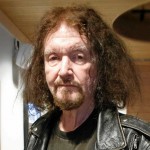



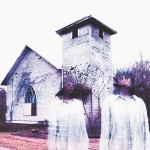

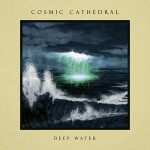
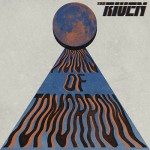
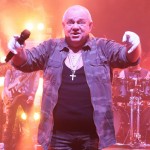


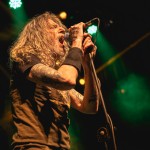
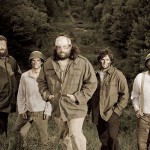
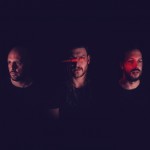


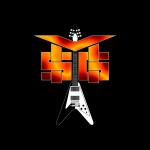

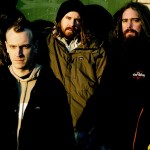

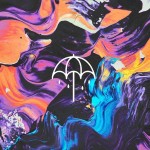
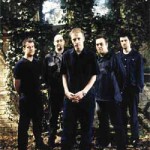

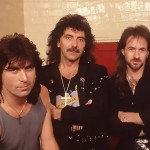


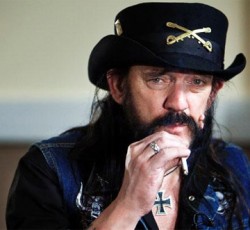

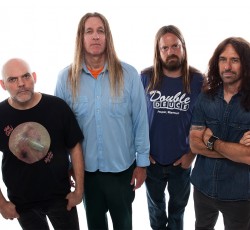
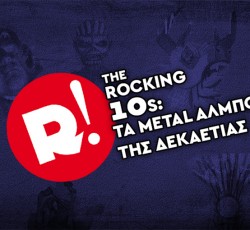

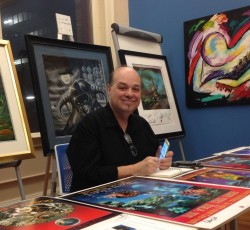

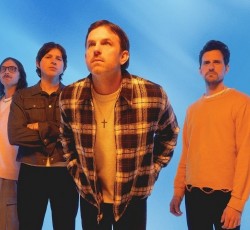











![[Βιβλίο]: Get That Beat - Ελληνικό Ροκ 2000 - 2013 (Ντίνος Δηματάτης)](https://images.rocking.gr/articles/2015/322x188/getthatbeat-cover.jpg)









